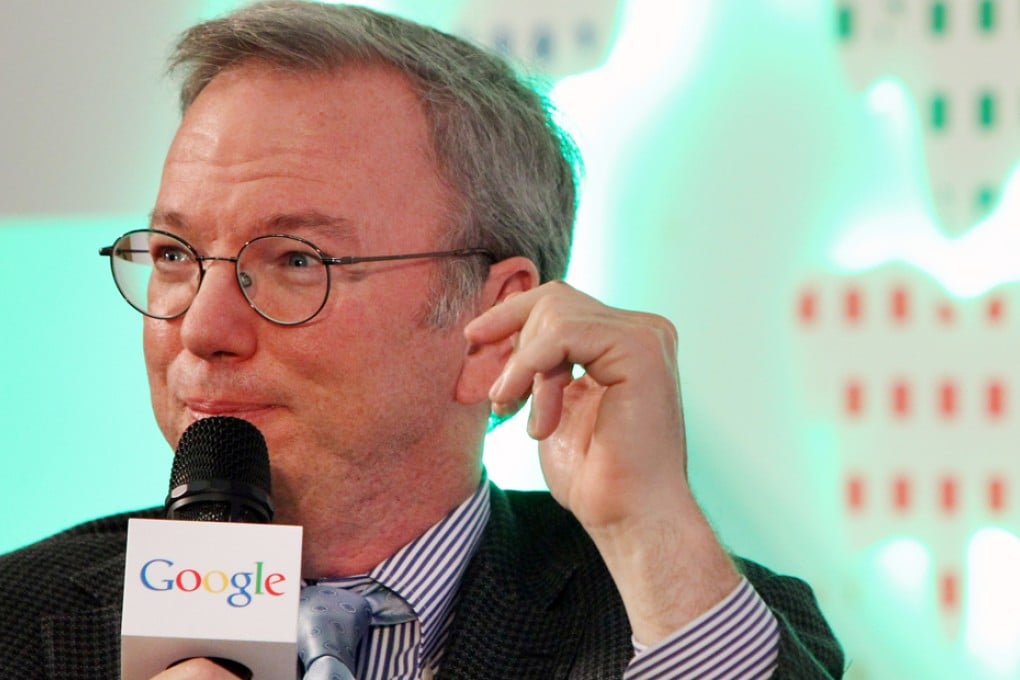Mr. Shangkong | Try downloading some fresh thinking is Google's tip for Hong Kong
Puzzled by the fuss over TV licences, the search giant's chairman Eric Schmidt urges city to focus on internet as innovation is what matters

Google's chairman Eric Schmidt is a truly busy man. But still I managed to grab him for a 30-minute interview during his recent visit to Hong Kong - a city he says he is a big fan of, though one he feels now faces more challenges than opportunities.
I have already written about Schmidt's request to Beijing to allow people to think and speak more freely; as well as his worries about Hong Kong's shortage of software engineers - a major reason, he says, why Hong Kong can only be a financial centre, unlike California, which can be home to the world's largest venture capital firms and the smartest technology innovators.
This time I raised with him the local news of the controversial failure of Ricky Wong Wai-kay's Hong Kong Television Network to win one of the new free-to-air television licences issued by the government. Schmidt's first reaction was apparent surprise. He asked me a question instead: Why don't they just focus on the internet?
"I think you need more YouTubes than TVs. All I can tell you is that competition is always a good thing, but in the future you will make more money on the internet. If you think in the long term, not just the short term, the future is all about internet connectivity and you will have mobile phones, tablets, and things like that," he said.
Schmidt, whose company Google is the parent of YouTube, the world's largest video-sharing site, said even his mother, in her 80s, has got used to watching videos on the internet. He tried to convince me that both the government and companies should focus on new technology rather than be stuck in an old-fashioned debate on whether a licence should be given or not for reasons that had nothing to do with the new social trend and innovation.
Indeed, one of my sources in the financial industry recently revealed to me that Wong was pitched by mainland technology giant Tencent's boss Pony Ma Huateng for a possible business tie-up; but Wong felt it better to do the television business on his own, so he walked away from the opportunity.
